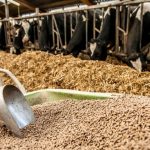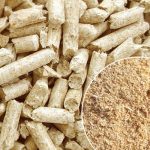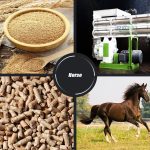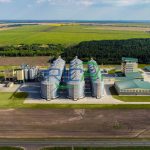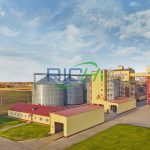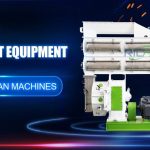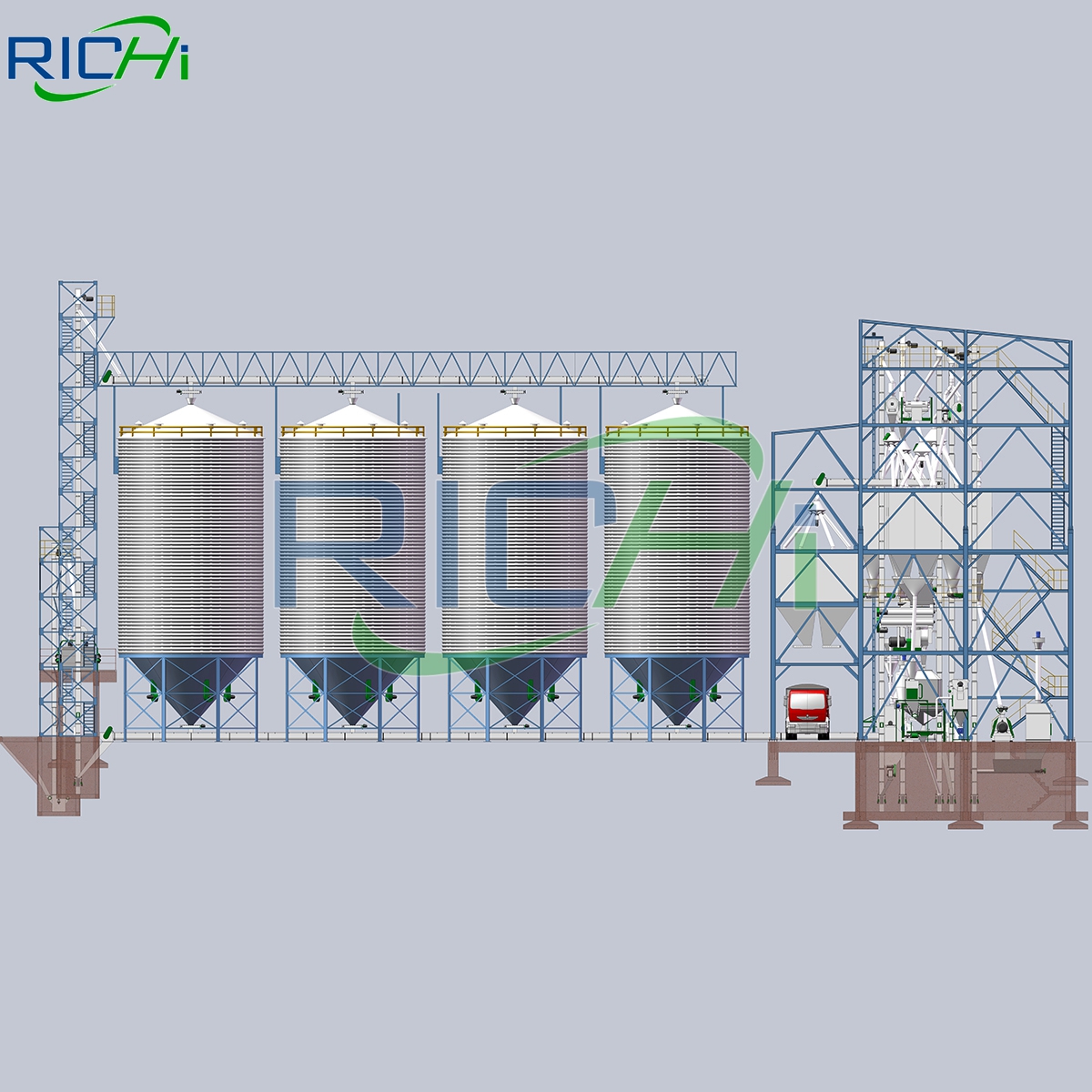In the dynamic and ever-evolving livestock industry, the efficient and cost-effective production of high-quality animal feed is a critical component for ensuring the health, growth, and productivity of livestock.
Animal feed production lines play a pivotal role in this process, transforming raw materials into tailored feed formulations that cater to the specific nutritional needs of various livestock species.As an experienced engineer in the field of animal feed processing equipment, I understand the importance of providing comprehensive and technically sound solutions to our clients.
In this article, we will delve into the intricacies of animal feed production lines, exploring their market potential, working principles, and the challenges faced during project implementation. Additionally, we will highlight the advantages of partnering with a trusted turnkey solution provider, RICHI Machinery, to ensure the success and profitability of your animal feed production operations.
Understanding Animal Feed Production Lines
An animal feed production line is a specialized system designed to manufacture a diverse range of animal feed products in a controlled and efficient manner. These lines are essential for meeting the nutritional requirements of livestock, including poultry, cattle, swine, and aquaculture species, among others.
The primary function of an animal feed production line is to blend and process various ingredients, such as grains, proteins, vitamins, and minerals, into a homogeneous mixture that can be further processed into the desired feed formulation.
Market Analysis and Profit Potential
The global animal feed industry is a multi-billion dollar market, driven by the increasing demand for animal-based products and the need for efficient livestock production. According to industry reports, the compound annual growth rate (CAGR) for the animal feed market is projected to be around 4-6% over the next few years.
This growth is fueled by factors such as the rising global population, the growing preference for protein-rich diets, and the emphasis on sustainable and environmentally-friendly livestock farming practices.
The profitability of an animal feed production line is influenced by several key factors, including the scale of operation, raw material costs, energy efficiency, and the ability to cater to specialized market demands. Larger production lines with higher throughput capacities tend to benefit from better economies of scale, resulting in lower production costs per unit.
Additionally, the ability to manufacture customized feed formulations for specific livestock species or production stages can command premium prices in the market, further enhancing the profit potential.
Classification and Working Principle
Animal feed production lines can be classified based on their throughput capacity, ranging from small-scale operations (2-10 tons per hour) to large-scale industrial facilities (80 tons per hour or more). Regardless of the scale, the working principle of these lines involves a series of interconnected processes:
- Ingredient Handling and Storage: Raw materials, such as grains, proteins, vitamins, and minerals, are received, inspected, and stored in dedicated silos or bins to ensure their quality and traceability.
- Grinding and Milling: The raw materials, particularly grains, are ground or milled to achieve the desired particle size, which is crucial for optimal digestibility and feed conversion efficiency.
- Mixing and Blending: The ground ingredients are precisely weighed and mixed in a specialized mixer to create a homogeneous blend, ensuring consistent nutrient distribution throughout the feed.
- Pelleting: The feed mixture is conditioned with steam and then extruded through a die to form pellets. Pelleting improves feed handling, storage, and consumption by livestock, while also enhancing nutrient availability.
- Cooling and Drying: The hot pellets are cooled and dried to prevent spoilage and maintain their structural integrity, ensuring the feed’s shelf life and quality.
- Packaging and Storage: The finished feed is packaged or stored in bulk for distribution and transportation to the end-users, such as livestock farms and aquaculture facilities.
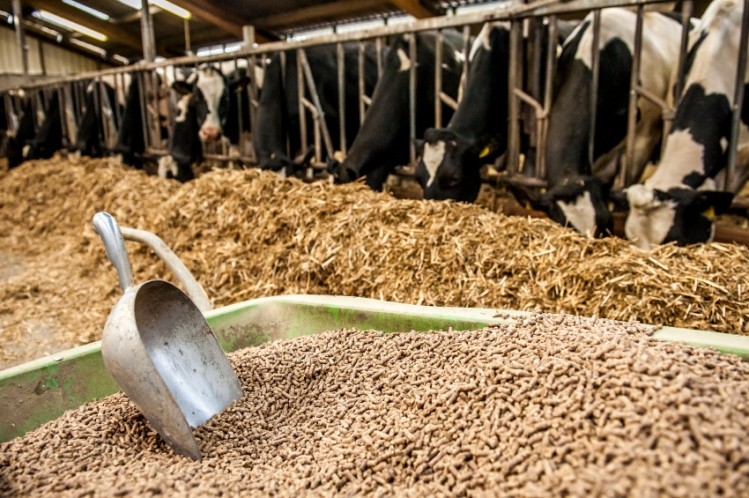
Project Case Studies: Addressing Challenges
As an experienced engineer in the animal feed production industry, I understand the importance of addressing customer concerns and providing data-driven solutions.
In this article, I will approach the topic of animal feed production lines from a different perspective, focusing on the challenges faced by customers and how RICHI Machinery’s innovative solutions can help overcome these obstacles.
One of the primary concerns for many livestock producers is the ability to meet the ever-increasing demand for high-quality animal feed while maintaining cost-effectiveness and operational efficiency.
According to industry reports, the global demand for animal feed is expected to reach 1.1 billion metric tons by 2025, driven by the growing population and the rising consumption of animal-based products .To meet this demand, producers need to invest in reliable and efficient animal feed production lines that can handle high throughput capacities while ensuring consistent product quality.
However, implementing such systems can be a daunting task, with numerous challenges to overcome.
Site Constraints and Layout Optimization
One of the most common challenges faced by customers is the limited space available for installing a new animal feed production line or expanding an existing facility.
This constraint often requires a carefully planned layout design to maximize the utilization of the available space while ensuring efficient material flow and accessibility for maintenance.In a recent project for a poultry feed producer in the Midwest, RICHI Machinery’s engineers encountered a similar challenge.
The client’s existing facility had limited floor space, and they needed to install a new 30 tons per hour production line. Our team conducted a detailed site survey and proposed a modular design with optimized equipment placement, allowing the client to achieve their desired production capacity while maintaining a compact footprint.
By leveraging advanced 3D modeling and simulation techniques, our engineers were able to analyze various layout scenarios and identify the most efficient configuration, minimizing material handling distances and ensuring easy access for maintenance and repairs.
Precision Ingredient Handling and Mixing
Another critical concern for animal feed producers is the ability to precisely control the dosing and mixing of ingredients to ensure consistent feed quality and meet stringent nutritional specifications.
Inaccurate ingredient ratios or incomplete mixing can lead to nutrient imbalances, which can negatively impact livestock health and productivity.In a recent project for a large-scale cattle feed operation in South America, RICHI Machinery addressed this challenge by implementing advanced weighing and batching systems, coupled with a high-efficiency ribbon mixer.
The weighing systems ensured precise dosing of each ingredient, while the ribbon mixer provided thorough and homogeneous mixing, minimizing the risk of nutrient segregation.To validate the effectiveness of our solution, we conducted extensive testing and analysis, including particle size distribution studies and nutrient homogeneity assessments.
The results demonstrated a remarkable improvement in feed quality, with a coefficient of variation (CV) for nutrient distribution below 5%, well within the industry’s stringent standards .
Handling Sensitive Ingredients
In the aquaculture industry, the production of high-quality feed often involves the use of delicate ingredients, such as fish meal and oils, which can be easily damaged during processing. Preserving the nutritional integrity of these ingredients is crucial for ensuring optimal growth and health of the aquatic species.
RICHI Machinery addressed this challenge by implementing a specialized gentle grinding and low-shear mixing system, coupled with a vacuum coating unit for precise application of liquid ingredients.
This approach minimized the mechanical stress on the sensitive components, preserving their nutritional value and ensuring consistent feed quality.
In a recent project for a leading aquaculture feed producer in Southeast Asia, our solution resulted in a significant reduction in the degradation of essential fatty acids and vitamins, with retention rates exceeding 95% .
This not only improved the nutritional profile of the feed but also contributed to better feed conversion ratios and growth performance in the farmed fish species.
Energy Efficiency and Sustainability
As the demand for animal feed continues to grow, producers are also faced with the challenge of reducing their environmental impact and operating costs. Energy-efficient production lines that minimize waste and optimize resource utilization are becoming increasingly important for long-term sustainability and profitability.
RICHI Machinery has been at the forefront of developing energy-efficient solutions for animal feed production lines. Our engineers incorporate advanced technologies, such as optimized motor sizing, heat recovery systems, and intelligent process control, to minimize energy consumption and reduce operational costs.
In a recent project for a large-scale swine feed producer in Europe, our energy-efficient design resulted in a 20% reduction in energy consumption compared to their previous production line . This not only translated into significant cost savings but also contributed to a lower carbon footprint, aligning with the client’s sustainability goals.
Comprehensive Training and After-Sales Support
Investing in a state-of-the-art animal feed production line is just the first step towards achieving operational excellence. Proper training and ongoing support are crucial for ensuring the efficient and safe operation of the equipment, maximizing its lifespan, and minimizing downtime.
At RICHI Machinery, we understand the importance of comprehensive training and after-sales support. Our team of experienced technicians and engineers provide hands-on training for operators and maintenance personnel, covering topics such as equipment operation, troubleshooting, and preventive maintenance.
Additionally, our dedicated after-sales support team is available 24/7 to address any issues or concerns that may arise, ensuring prompt resolution and minimizing production disruptions. We also offer remote monitoring and diagnostic services, allowing our engineers to proactively identify and address potential problems before they escalate.
By partnering with RICHI Machinery, customers can benefit from our extensive industry experience, technical expertise, and commitment to customer satisfaction, ensuring the long-term success and profitability of their animal feed production operations.
In conclusion, as an engineer in the animal feed production industry, I understand the challenges faced by customers and the importance of providing data-driven, innovative solutions.
RICHI Machinery’s comprehensive approach, which includes site optimization, precision ingredient handling, handling of sensitive ingredients, energy efficiency, and comprehensive training and support, sets us apart as a trusted partner for livestock producers worldwide.
By addressing these critical concerns and leveraging our technical expertise, we can help customers achieve their goals of producing high-quality animal feed while maximizing operational efficiency, reducing costs, and promoting sustainability.
Choosing RICHI Machinery as a Turnkey Solution Provider
RICHI Machinery is a leading manufacturer and turnkey solution provider for animal feed production lines, with a proven track record of delivering successful projects across the globe.
As an experienced engineer, I can attest to the company’s commitment to providing comprehensive and tailored solutions to its clients.One of the key advantages of choosing RICHI Machinery is their ability to handle every aspect of the project, from initial consultation and design to installation, commissioning, and after-sales support.
This turnkey approach ensures a streamlined project execution, minimizing downtime and maximizing the efficiency of the production line.RICHI Machinery’s customized solutions are a result of their deep understanding of the industry’s requirements and their dedication to engineering excellence.
Each animal feed production line is designed and engineered to meet the client’s unique needs, considering factors such as throughput capacity, feed formulations, and operational constraints.Moreover, RICHI Machinery utilizes advanced manufacturing techniques and premium materials to ensure the durability and reliability of its equipment.
Their production lines are also designed with energy-saving features, such as optimized motor sizing and heat recovery systems, which contribute to reduced operational costs and a more sustainable production process.Comprehensive training and after-sales support are also integral to RICHI Machinery’s offerings.
The company provides thorough training for operators and maintenance personnel, ensuring smooth operations and maximizing the lifespan of the equipment. Additionally, their dedicated service team is available to address any issues or concerns that may arise, ensuring the continuous and efficient operation of the animal feed production line.
By partnering with RICHI Machinery, clients can benefit from a trusted and experienced turnkey solution provider, ensuring the successful implementation and long-term performance of their animal feed production operations.
Frequently Asked Questions
By addressing these maintenance requirements, animal feed producers can maximize the efficiency, productivity, and lifespan of their production lines, ultimately contributing to the overall profitability and sustainability of their operations.
Conclusion
In the dynamic and competitive livestock industry, the efficient and cost-effective production of high-quality animal feed is a critical component for ensuring the health, growth, and productivity of livestock.
Animal feed production lines play a pivotal role in this process, transforming raw materials into tailored feed formulations that cater to the specific nutritional needs of various livestock species.
As an experienced engineer in the field of animal feed processing equipment, I have witnessed the transformative impact that a well-designed and properly implemented animal feed production line can have on the success and profitability of livestock operations.
By partnering with a trusted turnkey solution provider like RICHI Machinery, clients can benefit from customized solutions, optimized production processes, and comprehensive support, ultimately contributing to the long-term sustainability and competitiveness of their businesses.
Whether you are looking to establish a new animal feed production facility or upgrade an existing one, I encourage you to explore the capabilities and expertise of RICHI Machinery.
Their commitment to engineering excellence, innovative problem-solving, and turnkey project delivery can be the key to unlocking the full potential of your animal feed production operations.
